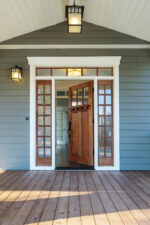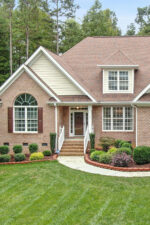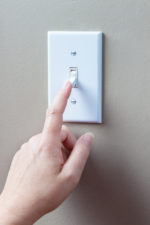Find the Neighborhood That’s Right for You
If you want to buy a home, you probably have a wish list of must-haves, such as an updated kitchen or a private backyard. However, do you know your neighborhood needs and wants? You should also consider these, because even if a home checks all the boxes, you will never truly love it if it’s in a neighborhood you don’t like. Follow these tips to find a home and a neighborhood that are a good match for you.
Accessibility

When researching neighborhoods, you’ll want one that is accessible to services and amenities, and if you commute, is a reasonable walk, drive, or ride away. For instance, if you have kids, how far away are the schools? Can your kids walk to school, or will they need to ride the bus or be driven to school? If they’ll be walking, are there safe sidewalks they can walk on? Are there shops or restaurants in the neighborhood, or do you have to go to another neighborhood to get a cup of coffee or grab a slice of pizza?
Activity
What is the vibe of the neighborhood? Does it have quiet, tree-lined streets, or is it bustling with activity? You should pick a community that suits your preferences. If you want to be in the center of it all, a home in a quiet suburban area might not be for you, but if you like the sound of birdsong over a bustling city street, it could be a good fit. Visit the neighborhood on weekdays, weekends, and at various times of the day to truly experience what it’s like.
City services

You’ll want to pay a visit to the neighborhoods you’re considering to evaluate the city or municipal services it receives. For instance, check whether the trash is picked up regularly, the streets are well lit, and the roads are maintained. For example, are the streets free and clear of potholes, and if and when it snows, are they cleared quickly?
Future development
Is the neighborhood you are considering fully built out or is there new development planned? For instance, an open field nearby could become a new housing development, school, or office park. Also, any new development could affect traffic patterns, the noise level, and a neighborhood’s overall feel. You could consult with your real estate agent or local elected representative to find out about any new development plans. You could also get this information on the municipality’s website or by checking local news websites.
Lot location
Once you have zeroed in on a neighborhood, scout out local homes. Do you like where they are located? You’ll want to see how close the home is to neighboring properties and what properties are next door. Are there neighbors on all sides, or does the home back to open space or to a commercial or public property? For instance, if a home is next to an office building or a school, do your research to determine how any activity or noise at those locations could affect you. If a home is near an open lot, determine whether the area is protected or if it can be developed. Visit any residential property you are interested in on various days of the week and at different times. For example, a location that’s quiet on weekdays could be busy and loud with activity on weekends.
Your neighbors

How well you interact with your neighbors-to-be could be a factor in how much you will like your new home. It’s a good idea to meet potential neighbors before making your purchase. They might be able to give you a more in-depth feel for the neighborhood too. Also, if you have kids, you might want to see if there are other children in the neighborhood they can play with.
With a little research, you can find a home you love in a neighborhood that you adore just as much.


















